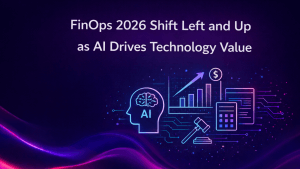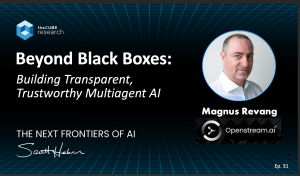ABSTRACT: The partnership between Dell Technologies and Red Hat has introduced the enhanced APEX Cloud Platform for Red Hat OpenShift, a solution designed to revolutionize hybrid cloud deployments, AI/ML workloads, and IT infrastructure modernization. As the Kubernetes market grows, driven by the need for containerization in AI and machine learning applications, the APEX platform offers a simplified, automated, and scalable environment that integrates Dell’s robust hardware with Red Hat’s leading OpenShift container platform. Key enhancements to this collaboration include expanded storage options, support for the latest Intel processors and NVIDIA GPUs, OpenShift Virtualization for running VMs alongside containers, and comprehensive data management capabilities with OpenShift Data Foundation. These features allow businesses to transition from traditional virtualization environments to a more flexible, cloud-native approach while leveraging existing investments. This growing synergy between Dell and Red Hat provides enterprises with a unified and efficient solution to meet the demands of digital transformation, hybrid cloud strategies, and next-generation AI workloads.
Market Dynamics for AI, Kubernetes, and Virtualization
The Kubernetes market continues to show robust growth, driven by the need for containerization and orchestration in modern IT infrastructure. According to recent data from Enterprise Technology Research (ETR), which surveyed over 1,700 IT decision-makers across 19 market sectors, containers have demonstrated strong momentum, particularly in light of strong momentum for AI/ML workloads. The data indicates that while many sectors, including cloud and virtualization, have seen deceleration since the introduction of ChatGPT in October 2022, the container sector has remained relatively stable, maintaining an elevated spending velocity above 40%.
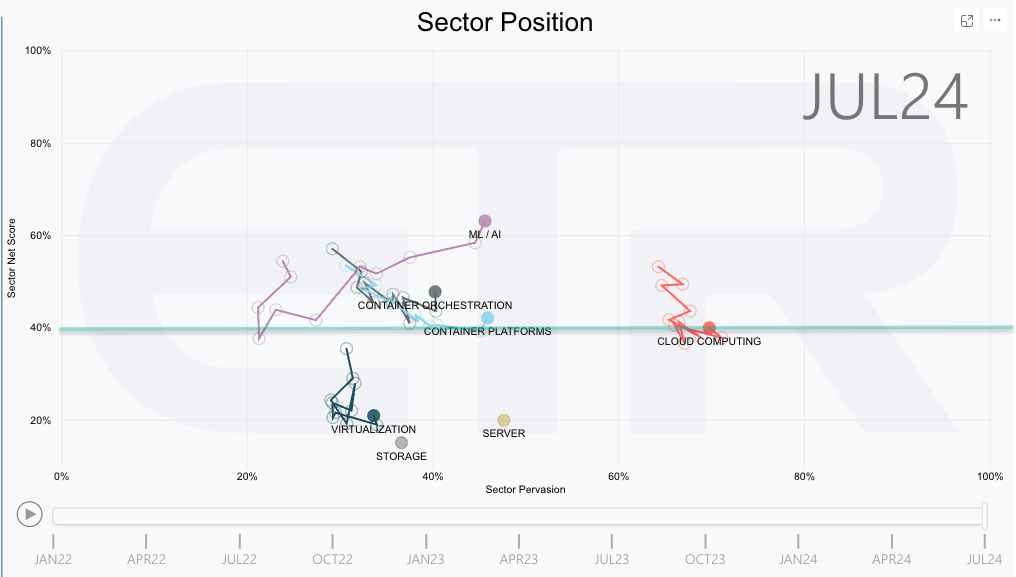
The primary reason for this trend is the increased adoption of container technologies for deploying AI and ML models. Solutions like NVIDIA’s NIM software are containerized for ease of use, portability, and governance, which are critical for managing complex AI/ML models. The use of Kubernetes as an orchestration platform for these containers ensures scalability, flexibility, and efficient management of workloads, which is why it continues to perform well in the market.
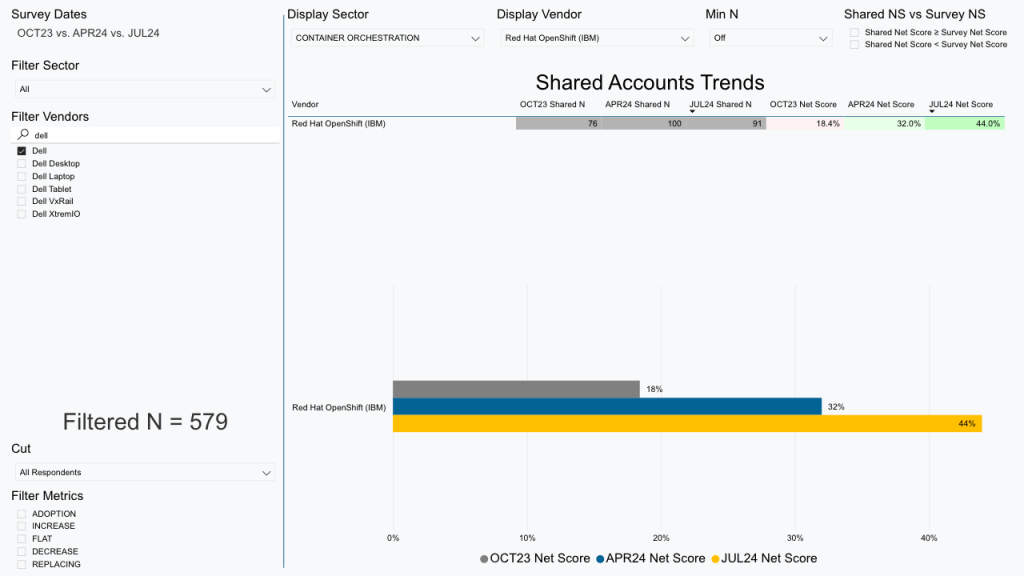
The overlap between Dell and Red Hat customers has been growing significantly, reflecting the increasing synergy and alignment between the two companies’ solutions. Data from Enterprise Technology Research (ETR) shows that the penetration of Red Hat OpenShift within Dell accounts has doubled in just one year, indicating strong momentum for their joint offerings.
Use Cases for the APEX Solution with Red Hat OpenShift
The APEX Cloud Platform with Red Hat OpenShift, developed and engineered by Dell and Red Hat, is designed to simplify the deployment and management of virtualized and containerized workloads. This platform provides an “easy button” solution for customers transitioning from traditional virtualization environments, such as VMware, to a cloud-native, containerized architecture. This is seen in the December 2023 ETR data on “factors in choosing an IT Vendor” below.
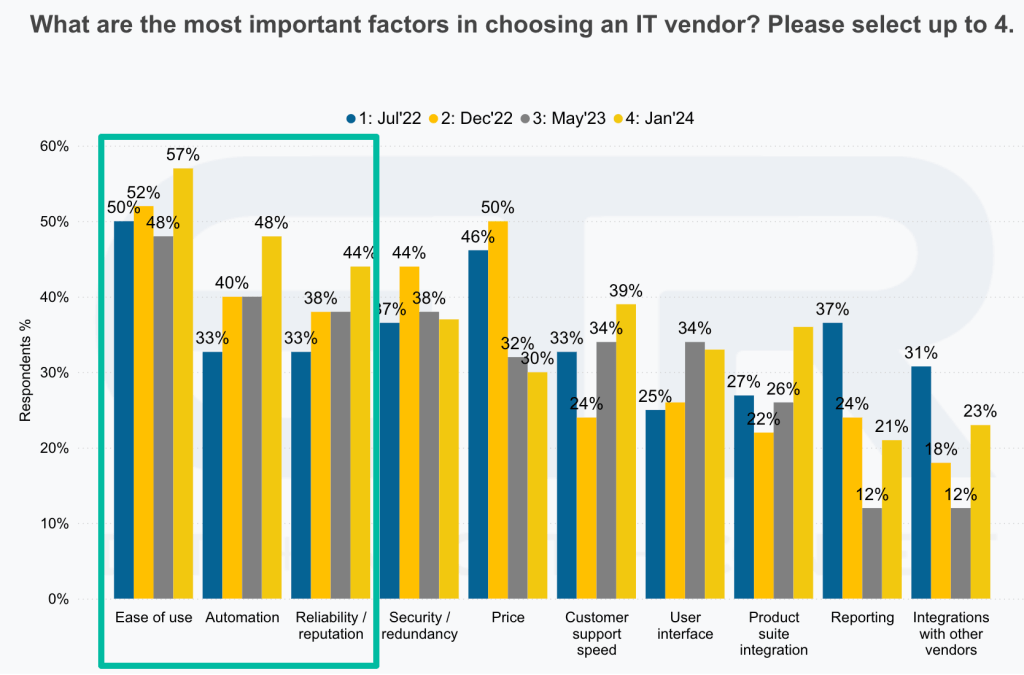
A significant use case for this solution is in supporting AI and ML applications, particularly those deployed at the edge where low latency is crucial. By leveraging OpenShift AI on the APEX platform, organizations can run AI inference tasks, such as digital assistants or speech recognition, more effectively. The ability to scale both storage and processing power makes it ideal for edge computing scenarios where rapid data processing and decision-making are required.
In addition to edge AI/ML workloads, the APEX platform is well-suited for hybrid cloud deployments. With Red Hat OpenShift available across major cloud providers, organizations can seamlessly operate workloads on-premises using Dell infrastructure while taking advantage of cloud services like AWS, Azure, or Google Cloud. This integration allows businesses to reduce the complexity of managing multiple infrastructure stacks and achieve a more consistent hybrid cloud environment.
The platform also caters to organizations looking to modernize their virtualized environments. The inclusion of OpenShift Virtualization (OpenShift Virt) enables the concurrent operation of virtual machines and containerized applications. This is particularly beneficial for companies that have legacy applications that aren’t easily containerized but need to coexist with modern cloud-native applications. By supporting both VM and container environments, Dell and Red Hat offer a flexible solution that reduces operational overhead and enhances infrastructure efficiency.
Moreover, the APEX platform integrates Dell’s comprehensive storage solutions, such as PowerStore, PowerScale, and PowerFlex, with Red Hat OpenShift, facilitating data mobility across on-premises and cloud environments. This integration is especially important for applications that require data locality and for those leveraging cloud-based AI/ML services, like Amazon SageMaker, alongside OpenShift AI.
Overall, these capabilities position the APEX Cloud Platform with Red Hat OpenShift as a versatile solution that simplifies hybrid cloud deployments, accelerates AI/ML use cases, and modernizes virtualized environments, providing organizations with a unified and efficient infrastructure for their evolving IT needs.
Enhancements to the Dell and Red Hat Partnership
Since the initial announcement of the APEX Cloud Platform for Red Hat OpenShift in November of last year, Dell and Red Hat have introduced several enhancements to their joint solution to better meet customer needs and respond to market trends. One of the key improvements is the expansion of storage options within the APEX platform, including integration with Dell’s PowerStore, PowerScale, and PowerFlex storage solutions. This allows organizations to leverage their existing Dell storage infrastructure while transitioning to a modern, containerized application platform. Another notable enhancement is the reintroduction of OpenShift Data Foundation, which provides comprehensive data management capabilities for Kubernetes-based applications. This addition helps businesses manage their data more effectively across both on-premises and hybrid cloud environments, enhancing data protection, availability, and resilience.
The APEX platform has also been upgraded to support the latest hardware, including new Intel processors and NVIDIA GPUs, which are crucial for demanding AI and ML workloads. This enhancement ensures that customers can build high-performance, scalable environments optimized for data analytics and AI applications, such as using OpenShift AI. Furthermore, the integration of OpenShift Virtualization (OpenShift Virt) into the platform allows organizations to run virtual machines alongside containerized applications seamlessly. This is particularly useful for companies transitioning from VMware to a more container-focused infrastructure, as it enables them to maintain traditional VM workloads where necessary while benefiting from a unified management environment.
To further streamline operations, the APEX Cloud Platform software emphasizes automation and is highly complimentary to tools like Red Hat Ansible to reduce complexity and accelerate deployment. This focus on automation aligns with the top priorities of IT organizations—ease of use, automation, and reliability—as highlighted by recent Enterprise Technology Research (ETR) data. These enhancements collectively position the Dell and Red Hat partnership as a powerful solution for organizations looking to modernize their IT environments, enabling faster time-to-value, improved flexibility, and greater operational efficiency.
Our Perspective
We see the enhanced collaboration between Dell and Red Hat, manifested in the APEX Cloud Platform for Red Hat OpenShift, reflects the continued evolution and demands of AI and modern IT environments. The platform’s focus on simplifying Kubernetes deployments, enabling hybrid cloud use cases, supporting AI/ML workloads, and modernizing virtualized environments positions it well to address the complexities organizations face transitioning to cloud-native architectures.
As the Kubernetes and Virtualization markets continue to evolve, driven by the proliferation of AI and ML applications and the need for scalable and efficient infrastructure, solutions like the Dell APEX with Red Hat OpenShift will play a critical role in enabling organizations to adapt to these new paradigms while leveraging their existing investments.
Disclosure: This theCUBE Research Analyst Brief was commissioned by Dell Technologies and Red Hat, and is distributed under license from theCUBE Research. theCUBE Research is a research and advisory services firm that engages or has engaged in research, analysis, and advisory services with many technology companies, which can include those mentioned in this article. Analysis and opinions expressed herein are specific to the analyst individually, and data and other information that might have been provided for validation, not those of theCUBE Research or SiliconANGLE Media as a whole.


